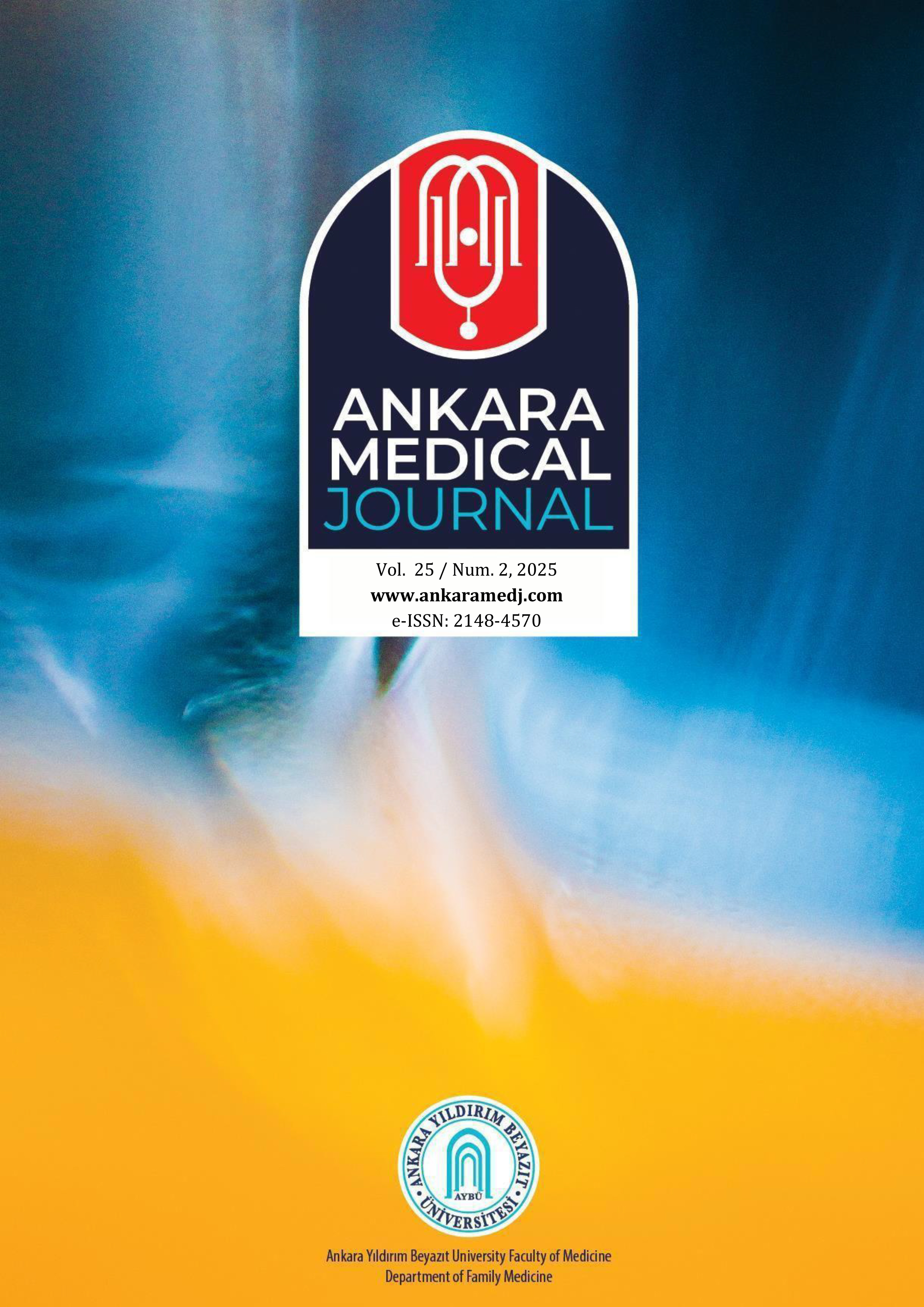One-Year Weight Follow-Up Results in Patients Followed in Obesity Clinic and Evaluation of the Association Between Annual Weight Loss Rate and the Number of Visits
Fatma Olcay Coşkun1, Bülent Can21Istanbul Medeniyet University Faculty of Medicine, Division of Family Medicine, Istanbul2Istanbul Medeniyet University School of Medicine, Division of Endocrinology and Metabolism, İstanbul
INTRODUCTION: The aim of this study was to evaluate the annual weight loss rate and the number of visits to obesity follow-up and to provide more effective follow-up of the patients with obesity follow-up.
METHODS: In this retrospective study, there is no history of additional metabolic disease or drug use in obesity followed by at least one year in Obesity Outpatient Clinic of Istanbul Medeniyet University, Göztepe Training and Research Hospital. Patients over 18 years of age with a body mass index (BMI) of ≥30 mg/m2 were included in the study. The annual weight loss rates were calculated by calculating the results of an annual weight gain.
RESULTS: The average annual weight loss in 243 patients was 6.9 ± 5.9 kg, and the average annual weight loss rate was 7.12 ± 5.75%. At the end of a year follow-up, 63.4% of the patients lost 5% weight with lifestyle intervention. A cut off value of 11 was found to be significant for the number of visits with a 5% weight loss. There was a statistically significant relationship between the annual weight loss rate and the number of visits.
DISCUSSION AND CONCLUSION: Lifestyle intervention is a very effective and applicable method in the treatment of obesity. Since this treatment is a feasible method in the primary care unit, as the number of visits increases, the success rate of treatment increases and the strategies to be included in the first step should be determined.
Obezite Polikliniğinde Takip Edilen Hastalarda Bir Yıllık Kilo Takip Sonuçları ve Yıllık Kilo Kaybı Oranı ile Vizit Sayısı Arasındaki İlişkinin Değerlendirilmesi
Fatma Olcay Coşkun1, Bülent Can21İstanbul Medeniyet Üniversitesi Tıp Fakültesi,Aile Hekimliği Bilim Dalı,İstanbul2İstanbul Medeniyet Üniversitesi Tıp Fakültesi,Endokrinoloji ve Metabolizma Hastalıkları Bilim Dalı,İstanbul
GİRİŞ ve AMAÇ: Bu çalışmada obezite polikliniğinde takip edilen hastaların yaşam tarzı müdahalesi ile bir yıllık kilo takip sonuçlarını değerlendirmek, obezite takip ve tedavisinin daha etkin olmasını sağlamak için yıllık kilo kaybı oranı ile vizit sayısı arasındaki ilişkiyi değerlendirmek amaçlanmıştır.
YÖNTEM ve GEREÇLER: Bu retrospektif çalışmaya İstanbul Medeniyet Üniversitesi Göztepe Eğitim Araştırma Hastanesi Obezite Polikliniğinde en az bir yıl süreyle takip edilen, kiloya etki edecek ek metabolik hastalık veya ilaç kullanım öyküsü bulunmayan (istisna olarak, tiroid hormon seviyeleri normal sınırlarda seyreden tiroid hastaları ve HbA1c değeri ≤%7 olan, sadece metformin kullanan diyabet hastaları dahil), Beden Kütle İndeksi (BKİ) ≥30 mg/m2 olan 18 yaş üstü hastalar dahil edildi.
BULGULAR: 243 hastada yıllık ortalama kilo kaybı 6,9±5,9 kg, yıllık ortalama kilo kaybı oranı %7,12±5,75 olup; 1 yıllık takip sonunda yaşam tarzı müdahalesi ile hastaların %63,4ü en az %5 kilo vermiştir. En az %5 kilo kaybı sağlayan vizit sayısı için anlamlılık gösteren cut off değeri 11 olarak bulundu. Yıllık kilo kaybı oranı ile vizit sayısı arasında pozitif yönde ve istatistiksel olarak anlamlı ilişki gözlendi.
TARTIŞMA ve SONUÇ: Yaşam tarzı müdahalesi obezite tedavisinde oldukça etkin ve uygulanabilir bir yöntemdir. Bu tedavi şeklinin birinci basamakta uygulanabilir bir yöntem olması, vizit sayısı arttıkça tedavi başarısının artması nedeniyle birinci basamağı içine alacak stratejiler belirlenmeli, aile hekimleri obezite yönetimi konusunda eğitilmeli, hastalarına gerekli vakti ayırabilmeleri sağlanmalıdır.
Manuscript Language: Turkish
(1308 downloaded)





